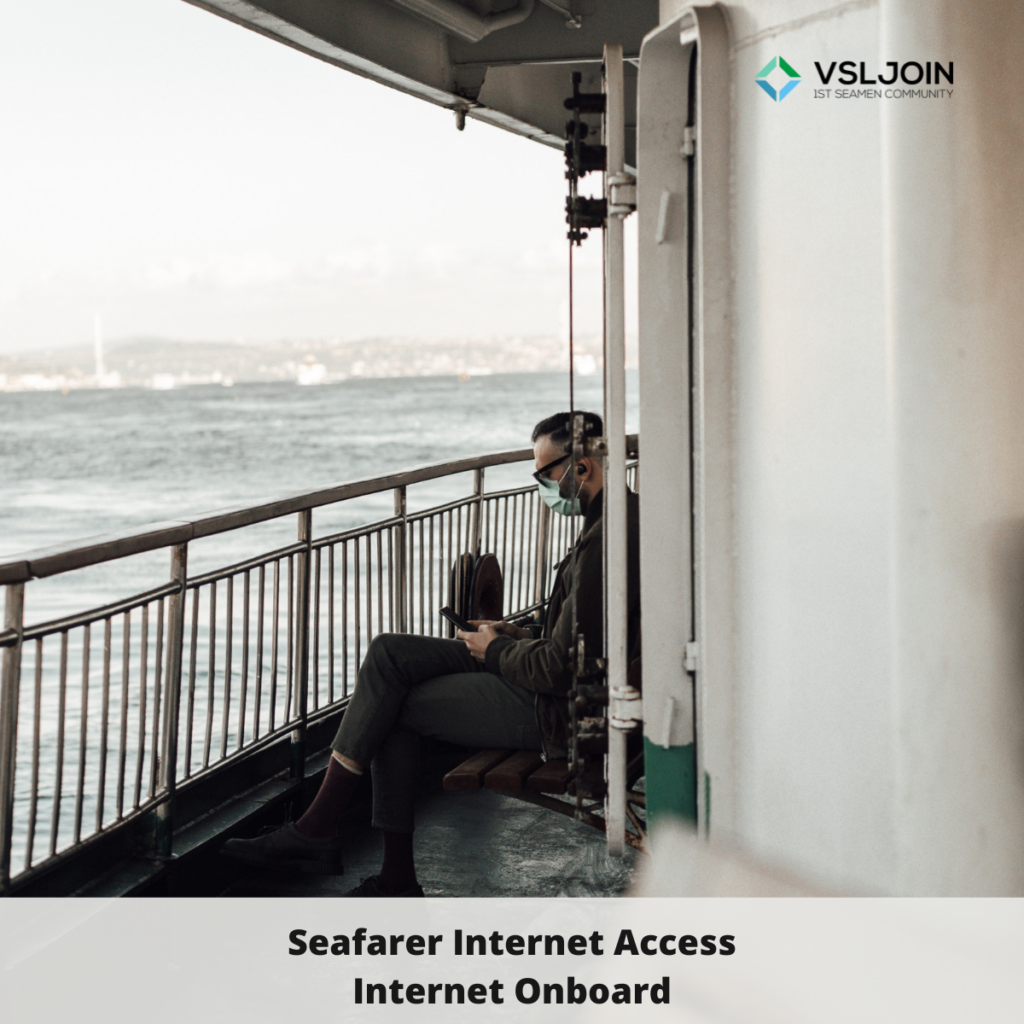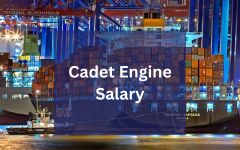How Does Internet Onboard Help Seafarer Lives?
A symphony of voices resonates through the waves, as seafarers embrace their families and friends through the digital realm—emails travel vast distances, social media bridges continents, and video calls transcend the confines of space and time.
Internet onboard not only helps seafarers to feel connected with their loved ones but also helps them to communicate more effectively with their colleagues, entertain themselves, or even learn online.
Being able to keep in touch with family and friends isn’t just a nice-to-have, it’s a basic human right. That’s why seafarers must have FREE and unlimited internet access onboard.
Enhancing Connectivity and Communication
In today's digitally connected world, seafarers no longer have to endure the isolation and limited communication options that were once synonymous with life at sea. The advent of internet onboard has revolutionized the way seafarers stay connected with their families, friends, and the outside world.
With internet access onboard, seafarers can communicate in real-time through various channels, including email, social media platforms, and video calls. This instant connectivity allows them to share their experiences, seek emotional support, and stay updated on important events back home. The ability to communicate with loved ones regularly helps alleviate feelings of homesickness and isolation, enhancing seafarers' mental well-being and overall job satisfaction.
Furthermore, internet onboard enables seafarers to access critical information that is essential for safe and efficient navigation. Real-time weather updates, navigational data, and emergency notifications can be accessed online, allowing seafarers to make informed decisions and take appropriate measures to ensure the safety of the vessel and crew. This instant access to information enhances situational awareness and operational efficiency, contributing to the overall safety of maritime operations.

In addition to personal communication and safety-related information, internet connectivity also facilitates effective crew coordination and collaboration. Seafarers can communicate with colleagues on different shifts or in different parts of the ship, enabling seamless information exchange and improved teamwork. This connectivity fosters a sense of unity among the crew, promoting effective problem-solving and decision-making processes.
Learning and Professional Development
Internet onboard has opened up vast opportunities for seafarers to enhance their knowledge, acquire new skills, and undergo professional development. The availability of online platforms and e-learning courses has transformed the way seafarers access educational resources and stay updated with the latest industry developments.
Seafarers can now enroll in online courses and certifications, covering a wide range of subjects such as maritime regulations, safety procedures, navigation techniques, and environmental awareness. These courses are designed to enhance seafarers' competency and ensure compliance with international standards. By leveraging the internet, seafarers can conveniently access these courses from anywhere in the world, allowing them to continue their professional development even while at sea.
Moreover, internet access enables seafarers to access an extensive array of educational resources. Online libraries, technical manuals, industry publications, and research papers are readily available, providing seafarers with a wealth of knowledge and information. This access to educational materials empowers seafarers to expand their understanding of their profession, stay abreast of the latest advancements, and develop specialized skills in areas of interest.
Furthermore, internet connectivity enables seafarers to connect with subject matter experts and participate in online forums and discussion groups. Through these platforms, seafarers can exchange ideas, seek advice, and learn from the experiences of others in the maritime industry. This virtual networking fosters professional growth, promotes knowledge sharing, and cultivates a sense of community among seafarers worldwide.
The ability to engage in online training and educational activities also enhances seafarers' career prospects. By acquiring new skills and certifications, seafarers can increase their competitiveness in the job market and open doors to higher-ranking positions. The Internet provides access to job portals, recruitment agencies, and professional networking platforms, allowing seafarers to explore new career opportunities and connect with potential employers.
Furthermore, internet access facilitates continuous learning and professional development even during downtime. Seafarers can utilize their leisure time to engage in online courses, read industry news, and participate in webinars and virtual conferences. This ongoing learning not only keeps seafarers intellectually stimulated but also helps them stay updated with evolving.
Access to Entertainment and Recreation
The availability of internet onboard offers seafarers an array of entertainment and recreational opportunities, transforming their downtime at sea. With reliable connectivity, seafarers can access various forms of digital entertainment, such as movies, music, and games.
Streaming platforms allow them to enjoy a wide range of content, providing an escape from the daily routine and offering moments of relaxation and enjoyment. Additionally, social media platforms enable seafarers to stay connected with friends and family, sharing experiences and fostering a sense of belonging.
Beyond entertainment, the internet onboard also supports seafarers' recreational pursuits. Online resources provide access to fitness videos, enabling them to maintain their physical well-being while onboard. Cooking websites and tutorials offer inspiration and guidance for exploring culinary interests. Moreover, the internet facilitates engagement with hobbies and passions through forums and online communities, allowing seafarers to connect with like-minded individuals and expand their knowledge and skills.
Overcoming Challenges and Ensuring Reliability
While the benefits of internet onboard are significant, there are challenges to overcome to ensure reliable connectivity for seafarers. The remote nature of maritime environments poses a hurdle in providing consistent internet access. However, advancements in satellite communication have significantly improved connectivity options for vessels navigating vast oceans. Satellite networks enable seafarers to stay connected to the digital world, bridging the geographical divide and reducing isolation.
Affordability remains an important consideration in maritime internet connectivity. Efforts are being made to find cost-effective solutions that make reliable connectivity accessible to all seafarers, irrespective of their economic background. Collaborative initiatives involving shipowners, service providers, and regulatory bodies play a crucial role in achieving this objective, working together to strike a balance between quality and affordability.
Cybersecurity is another critical aspect of maritime internet connectivity. As seafarers rely on digital systems and data exchange, protecting sensitive information and preventing cyber threats becomes essential. Robust cybersecurity measures are implemented onboard, including firewalls, encryption, and adherence to strict protocols, to ensure the integrity and security of data.
Looking ahead, the maritime industry should embrace emerging technologies, such as 5G and satellite constellations, to further enhance connectivity.
These advancements hold the potential to offer greater bandwidth, faster speeds, and improved internet access, empowering seafarers with even more opportunities for communication, entertainment, and professional development while at sea.
Without a doubt, internet onboard is a must for seafarers and should always be provided!






